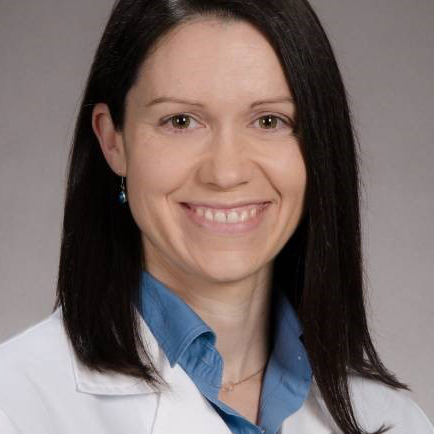#ChooseCardiology: Kathleen E. Kearney, MD
Why did you choose cardiology?
Cardiology captured me on my first elective as a medical student. I loved the physiology of it – pressure, volume and electromechanical coupling just made sense. The bedside evaluation was as important as the application of cutting-edge technology, and we combined it all to understand and treat pathophysiology. Cardiology led me to internal medicine over surgery and my interest only grew in residency. I remember leaving post-call after caring for a 42-year-old man who had a cardiac arrest in the hospital and underwent urgent revascularization, fearing he might be dead before I returned the next day. Instead, he was extubated, off pressors and anxious to hear every detail of the night he could not remember. He did great and was discharged home shortly thereafter, and I was hooked.
What do you like best about cardiology?
Cardiology has incredible breadth from prevention and chronic management of disease to the highest of acuity presentations, and working with patients to identify their treatment options is very satisfying. Many of these pathologies can be intervened upon with a significant impact on patients' quality of life. We see disease transpiring over decades that we can sometimes treat in a matter of minutes and other lives change in an instant and require life-long management. We get to be a part of all of it.
Who has been a role model or mentor for you?
Both Jamie McCabe, MD, and William L. Lombardi, MD, FACC, of University of Washington inspired me to become an interventionalist and have provided me with incredible mentorship and sponsorship. They welcomed me to a male-dominated space without batting an eye and are incredibly invested in training the next generation of interventional cardiologists. Moreover, they demonstrate an unwavering commitment to treat the patient based on the indication rather than technical ease for the operator. They taught me to first figure out what the patient needs and then find a solution, realizing that solution may require you to ask for help from another. There is a natural tendency for operators to see a procedure in light of the technical features and what is in their own skillset, but that can blur the indication with technical ease. A "simple" procedure does not lower our standards to take any procedural risk and the patient who really needs an intervention does not ask if it was easy or hard for the operator. McCabe and Lombardi share this philosophy and it drives a creativity that is advancing our field.
Why did you choose this area of cardiology?
Medicine is a team sport but especially so in the catheterization lab. Very ill patients need the team to work efficiently in an otherwise chaotic situation, and working with our highly trained techs, nurses and cardiologists in these situations is very rewarding. I also value the relationship we develop with a patient when deciding whether to proceed with an elective procedure – these are intense discussions and we rely heavily on shared decision-making. Between technique and technology, interventional cardiology is always changing and requires as much art as it does science.
What advice would you give women considering cardiology?
Do not be deterred because you envision having a family. The field is changing and all the more as more women enter the field. Any physician has challenges with work-life balance – it is easiest done if you love what you do. Fellows often cite radiation exposure as a barrier to entering interventional cardiology but are unaware of data demonstrating safety of occupational exposures using standard precautions. Fortunately, our personal radiation exposure is declining with the availability of modern, low-dose fluoroscopy systems and robotic-assisted interventions.
Would you choose cardiology again?
One hundred percent yes! It is the best job in the world.


